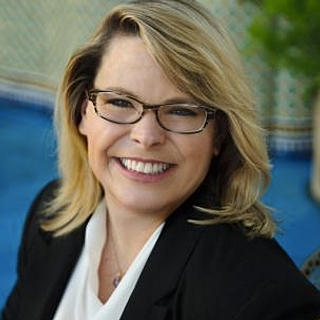What do you want to be when you grow up?
- Deb Russell
- Jan 4, 2019
- 4 min read
This is the first post in a series of 4 blogs focusing on helping people with disabilities get a job.
Do you remember your first job? We can get pedantic and debate what “counts” as a job, but to shorten the discussion, let’s say your first “paid” job.
Mine was shoveling snow for our next-door neighbor. She was an elderly woman and had asked me to clear her front walk when it snowed.
After that, it was babysitting until I was 16 and could get paid via a w2.
But I remember always wanting to be a nurse. There are photos of me in a nurse’s costume as a young child; I guess I selected that goal because of two things:
1. I had was sick (a lot), as a child, so I had a lot of exposure to the medical profession
2. People asked me “what do you want to be when you grow up?” and I needed to have an answer for them.
When in high school, a favorite teacher of mine asked “why do you want to be a nurse? You are so smart, you could be a doctor…” I contemplated the question/complement and decided to change my goal to be a doctor. Until second semester of college when I found out that pre-med required a 5-day per week organic chemistry class and it was only offered at 8 AM. So, I changed my major (as I was not mature enough to choose serious academic rigor over partying).
I changed my major several times, went to graduate school and have never had the same job title ever. I’ve sold shoes, answered phones, served food, cleaned houses, taught school, managed projects and more.
I take you down this memory lane to make the point that we rarely have a solid line in our career trajectory but most of us have a path.
However, I had two things that many people who acquire their disability before the age of 18 did/do not have:
1. Exposure to many different environments and people in professions
2. People asking me “what do you want to be when you grow up?”
Do any of you have children with disabilities? Or know people who have children with disabilities? Do you ask them “what do you want to be when you grow up?” (assuming you ask children who do not have disabilities that question). I make a point, of asking each child with a disability that I meet the question and asking their parents for one specific reason – because I assume that they all will work when they’re old enough. And unfortunately, very few people outside of my industry assume that people with disabilities can work. And now in my career, I am constantly asked “what jobs can people with disabilities do?” and never get tired of answering “anything and everything”. Now obviously, none of us can do everything but everyone can do something, even people with disabilities. But it baffles me how many people with disabilities are unsure how to start toward their next job. So… Here’s my top ten list of ways that people with disabilities can select a job or career goal
1. Start with the assumption that people with disabilities can and will work
2. Explore – think about familiar jobs, professions and work places and then look beyond those
3. Interview people in different professions, get a better understanding of what they do all day, how that changes and how what they do now, relates to schooling and other jobs
4. Leverage interest inventories and some of those silly Facebook quizzes to better understand what attributes are connected to different professions
5. Analyze your values and look for connections to professions- do you think everything should match? Do you have opinions about saving money? Does conservation get you excited?
6. Be a realistic dreamer – if you hate flying, being a pilot is probably not a good idea, however if you love putting together Legos, consider being an architect, or a mason, or an engineer or a sorter/packer.
7. Research what is available in your local area – what industries are prevalent, what companies are growing? If you do not have your own transport and ride share is not available in your area, what other options/restrictions do you have on your search?
8. Get an internship – paid or unpaid, the exposure and experience are invaluable
9. Get a mentor – find someone who (who is successful in their job) and ask them to help in your search, heed all advice
10.Network – tell everyone you know that you are looking for help in deciding what a good job goal is, ask people their opinions and for suggestions as to whom else you should interview.
Still unsure what a person with a disability can do? Take my “Disability Quiz” online https://www.debrussellinc.com/quiz
Test your understanding of the connection between success and disability – did any of the answers surprise you? I offered this for the first time about a decade ago as an awareness building tool and it continues to help people expand their impressions of what a person with a disability can do.
Stay tuned next week as I explore “applying for a job as a person with a disability”.
(Note: for more info on the business case of disability inclusion, feel free to download my new eBook: Disability Inclusion: A Summary of the Direct and Indirect Benefits)



Comments